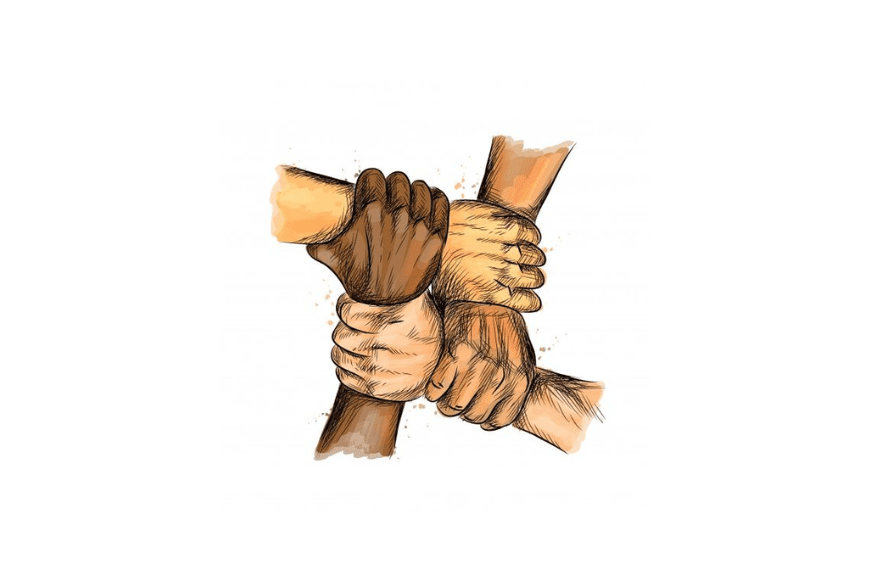

After Sneezing
اَلْحَمْدُ للهِ
Al-ḥamdu li-llāh.
“Praise be to Allah.“
“The Messenger of Allah ﷺ said, “If anyone of you sneezes, he should say [the above].” (Bukhārī 6224)
Your Companion Should Reply
يَرْحَمُكَ اللهُ
Yarḥamuka-llāh.
“May Allah have mercy on you.“
The Messenger of Allah ﷺ said, “If anyone of you sneezes, he should say ‘Al-ḥamdu li-llāh’ (Praise be to Allah), and his (Muslim) brother or companion should say to him, [the above]. (Bukhārī 6224)
Then You Should Say
يَهْدِيْكُمُ اللهُ وَيُصْلِحُ بَالَكُمْ
Yahdīkumu-llāhu wa yuṣliḥu bālakum.
“May Allah guide you and put your affairs in order.“
“The Messenger of Allah ﷺ said, ” If anyone of you sneezes, he should say ‘Al-ḥamdu li-llāh’ (Praise be to Allah), and his (Muslim) brother or companion should say to him, ‘Yarḥamuka-llāh’ (May Allah bestow his Mercy on you). When the latter says ‘Yarḥamuka-llāh”, the former should say [the above].” (Bukhārī 6224)
When Greeting a Muslim
السَّلاَمُ عَلَيْكُمْ وَرَحْمَةُ اللَّهِ وَبَرَكَاتُهُ
Assālamu ʿalaykum wa Raḥmatu-llāhi wa Barakātuh.
“Peace be upon you, and the mercy and blessings of Allah.“
ʿImrān b. Ḥusayn (raḍiy Allāhu ‘anhu) said: “A man came to the Messenger of Allah ﷺ and said: ‘Peace be upon you.’ He responded and then he sat down. The Prophet ﷺ said: ‘Ten.’ Then another came and said: ‘Peace be upon you and the mercy of Allah.’ He responded to him and he sat down. The Prophet ﷺ said: ‘Twenty.’ Then another came and said: ‘Peace be upon you and the mercy and blessings of Allah.’ He responded to him and he sat down. The Prophet ﷺ said: ‘Thirty.’” (Abū Dāwūd 5195)
When Thanking Another Person
جَزَاكَ اللَّهُ خَيْرًا
Jazāk-Allāhu khayrā
“May Allah reward you with goodness.“
Usāmah b. Zayd (raḍiy Allāhu ‘anhu) narrated that the Messenger of Allah ﷺ said: “Whoever is treated well and says [the above] has expressed praise to the fullest. (Tirmidhī 2036)
When Someone Informs You That They Love You
أَحَبَّكَ الَّذِيْ أَحْبَبْتَنِيْ لَهُ
Aḥabbaka-lladhī aḥbabtanī lahu.
“May He for Whose sake you love me, love you.“
“Anas (raḍiy Allāhu ‘anhu) said: “A man was with the Prophet ﷺ when another man passed by. He said: ‘O Messenger of Allah, I love this person.’ The Prophet ﷺ asked him: ‘Have you let him know?’ ‘No,’ he replied. He said: ‘Let him know.’ He met [the same man] and said: ‘I love you for the sake of Allah.’ He replied with [the above].” (Abū Dāwūd 5125)